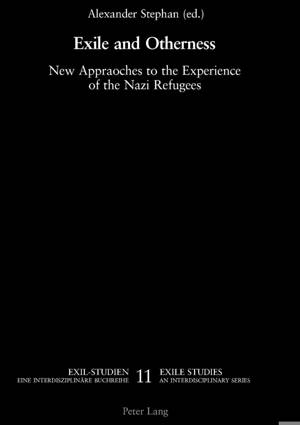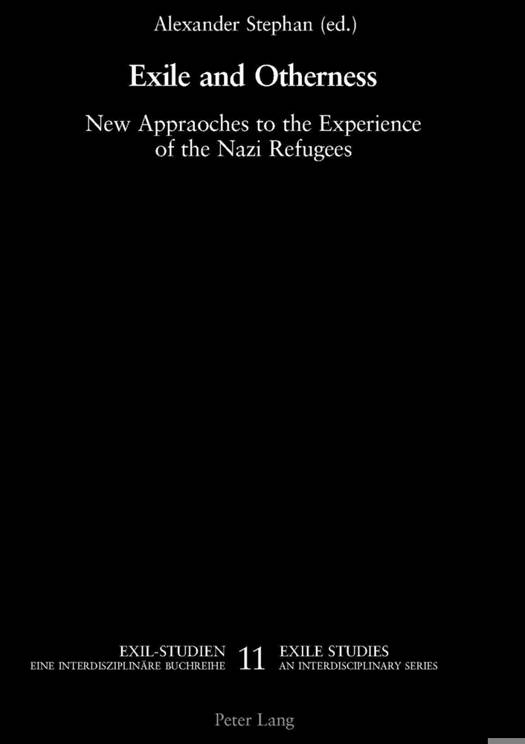
Door een staking bij bpost kan je online bestelling op dit moment iets langer onderweg zijn dan voorzien. Dringend iets nodig? Onze winkels ontvangen jou met open armen!
- Afhalen na 1 uur in een winkel met voorraad
- Gratis thuislevering in België vanaf € 30
- Ruim aanbod met 7 miljoen producten
Door een staking bij bpost kan je online bestelling op dit moment iets langer onderweg zijn dan voorzien. Dringend iets nodig? Onze winkels ontvangen jou met open armen!
- Afhalen na 1 uur in een winkel met voorraad
- Gratis thuislevering in België vanaf € 30
- Ruim aanbod met 7 miljoen producten
Zoeken
Exile and Otherness
New Approaches to the Experience of the Nazi Refugees
€ 97,95
+ 195 punten
Omschrijving
In recent years Culture Studies, Anthropology, German Studies, History, Political Psychology, and other fields have used the concept of 'exile' in close connection with terms like migration, border crossing, identity, and transnationality. Views of a homogeneous culture and of centricity collide with ideas like multiculturalism, pluralism, creolization, and the globalization of differences. A transit-culture, inhabited by the flaneur and the nomad, is supposed to have replaced citizenship in a nation. At the same time, there can be no doubt that the experience of those writers, artists and intellectuals who were driven out of Germany and Europe by the Nazis was in many ways unique.
This book investigates the exile experience in a theoretical and comparative way by exploring the possibilities and limitations of concepts like diaspora, de-localization, and transit-culture for understanding the lives and works of German and Austrian refugees from Nazi persecution. It revisits the interaction of the exiles with the culture of their host countries in light of recent debates about migration and identity studies and it analyzes texts, paintings and other methods of artistic expression which connect the experience of the refugees of 1933 with postmodern notions of de-localization, hybridity, and marginalization.
This book investigates the exile experience in a theoretical and comparative way by exploring the possibilities and limitations of concepts like diaspora, de-localization, and transit-culture for understanding the lives and works of German and Austrian refugees from Nazi persecution. It revisits the interaction of the exiles with the culture of their host countries in light of recent debates about migration and identity studies and it analyzes texts, paintings and other methods of artistic expression which connect the experience of the refugees of 1933 with postmodern notions of de-localization, hybridity, and marginalization.
Specificaties
Betrokkenen
- Uitgeverij:
Inhoud
- Aantal bladzijden:
- 314
- Taal:
- Engels
- Reeks:
- Reeksnummer:
- nr. 11
Eigenschappen
- Productcode (EAN):
- 9783039105618
- Verschijningsdatum:
- 14/11/2005
- Uitvoering:
- Paperback
- Formaat:
- Trade paperback (VS)
- Afmetingen:
- 150 mm x 220 mm
- Gewicht:
- 430 g

Alleen bij Standaard Boekhandel
+ 195 punten op je klantenkaart van Standaard Boekhandel
Beoordelingen
We publiceren alleen reviews die voldoen aan de voorwaarden voor reviews. Bekijk onze voorwaarden voor reviews.










